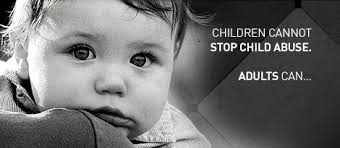Child Abuse from a Law Enforcement Perspective
By Fabian Lizarraga
Editor’s Note: Mendocino County’s child abuse rates are in the red zone compared to those of other California counties; and the latest statistics show an increase in local child abuse and neglect after several years of steadily declining rates. In this article, the Fort Bragg Chief of Police reflects on this troubling issue and what we can do about it.
We have all seen the now too-familiar headlines or heard the news story that shocked us to our core. Parents arrested for unfathomable cruelty to their own kids. A mother charged and convicted of the murdering her child(ren). And we all shake our heads and collectively ask ourselves, “How does this happen? How could it happen?” Unfortunately, child abuse, child endangerment, and outright mistreatment of kids are all too commonplace. And yet in some areas they still lurk in the shadows, a dirty little secret we are afraid to examine.
Is it because of the nature of it that we don’t want to look at it or admit that it happens? Perhaps it is this perception that makes us not want to acknowledge some of the danger signs pointing to a child being at risk. The loud screaming indicating someone is getting beaten next door. Should we step in when a parent is “disciplining” their child? The violent yanking on a toddler’s arm; the black eyes or visible bruising that seem to show up on a regular basis on a neighborhood kid or a student in class. When do we have a right to step in? “It’s not my kid; maybe that’s how they do things in that culture; I don’t want to cause problems with the neighbors.” These are questions that we may be confronted with when we see or hear the signs that a child is possibly being abused.
We do have the right to step in when we suspect that a child is receiving more than discipline or that the treatment is so violent that it causes injury. Yes, you may be told by the offending party that “It’s none of your business how I raise my child.” But if we don’t step in, the risk of serious injury or worse should far outweigh the embarrassment of being called a busybody or being called out for stepping up. And that’s all that may happen if your suspicions are wrong―a little embarrassment. We can all get over that fairly quickly. It’ll be much harder to get over the guilt of knowing we could’ve stopped something, could’ve saved a child’s life, and didn’t.
Did you know that there are laws that demand that certain people report suspected child abuse to Law Enforcement or Social Services? They are known as Mandated Reporters. Sections 11164 through 11174.3 of the California Penal Code describe who is a “mandated reporter.” They cover a wide expanse of occupations from school employees to medical professionals to social service workers and counselors to athletic coaches, and the list goes on and on. Failure to report suspected child abuse by a mandated reporter is a misdemeanor, punishable by a fine and/or imprisonment. Law Enforcement and Social Service agencies are then entrusted with conducting investigations into these reports and determining whether they are valid or not, and taking any necessary action to protect the child.
But even with these laws in place, there are failures. In a lot of cases, the suspected abuse is not reported, or the proper follow-up is never done, or there are not enough resources to look at everything; so some cases fall through the cracks. And unfortunately, sometimes a failure in any one of these areas results in kids being continually abused, sometimes even killed.
Mandated Reporters know who they are and what they must do, for the most part. Where we need to improve is with our neighbors, family members or community members where the child abuse is taking place. The price of not becoming involved could be the loss of one of our children. And one last thing to consider: Child abuse knows no bounds. It happens in “good homes” and dysfunctional ones. It happens among the homeless and within the walls of estates. It crosses all racial, cultural and socio-economic lines. The only common denominator is that it happens to an innocent child, desperately hoping that someone will reach out and help.
Be that someone.
Tragically, the abuse of kids is one of those human cycle patterns that turns the abused into the abusers as they grow older. We stand to lose more than one generation when we don’t stop the abuse at the first victim. Several studies also indicate that abused kids are more susceptible to turn to the gang culture and/or drugs as a means of finding a way of belonging. Law Enforcement tries to intervene as early as possible and get kids the help they need before they become an enforcement problem as adults. But it shouldn’t be strictly an enforcement problem or issue. It’s a community-wide issue, and communities need to pour resources such as adequate foster care, counselling, placement and investigation into these types of cases.
Otherwise, the cycle continues.
###
Chief Fabian Lizarraga has been the Chief of Police at the Fort Bragg Police Department since April of 2015. As a Command officer with the Los Angeles Police Department, he was responsible for investigating cases of physical and sexual child abuse where the suspect was the parent, guardian or caretaker.

